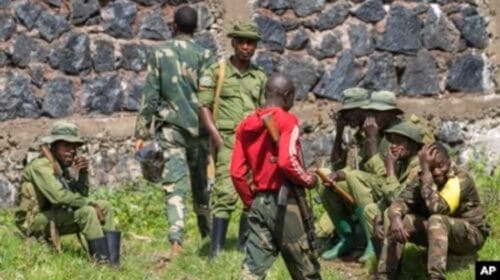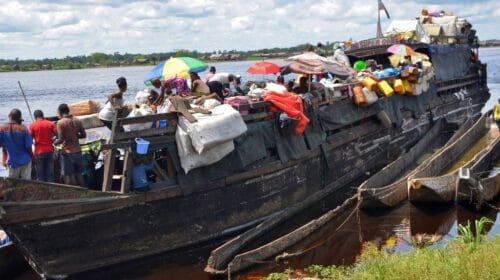Just How Important is the Rule of Law in DRC Elections?
 In Roughly 60 Days one of the most crucial elections in Africa will take place in Central Africa. These Elections in the Democratic Republic of the Congo can be seen as leading into a point of Transition that has implications both within the Country and the Region as well.
In Roughly 60 Days one of the most crucial elections in Africa will take place in Central Africa. These Elections in the Democratic Republic of the Congo can be seen as leading into a point of Transition that has implications both within the Country and the Region as well.
The Main Implication within the large country is not only how the Rule of Law will be followed but also how will it be both protected and enforced. In layman’s terms Rule of Law means that the Government will be set up with Separation of Powers between the Branches of Government (Executive, Legislative and Judiciary,) and also that said Government respects the Rights of its Citizens, It also implies that the rules of Governance are to be decided by the Citizens and not by those who currently hold power.
History has taught us that the DRC or Zaire has had history of strong Centralized leadership particularly under the reign of General Mobutu. Therefore the Principles and Norms established
during his time in power have be scrutinized. During his rule during the Cold War it was felt that Single Party systems provided relative stability across Africa during the 1970s and 80s. However since his overthrow and death another attempt at centralized leadership has existed in the Country.
As mandated under the current Constitution of the Country Elections are scheduled to
take place in the month of November of this year. So therefore has the Rule of Law been honored during the run-up to this plebiscite? At the initial glance the answer has to be yes. There has been an amendment to the Constitution that changed the Election Law from a series of two rounds of voting into a single round
with a winner take all finish. Another Change in the Law is how the votes will be counted in the Country.
These steps are critical in order to prevent Electoral Fraud and delays in the release of vote counts which has seen some violent reactions in Several African Elections in recent months. On a National level all Elections Centers will be decentralized. This means that tallies can be released without having to be sent to a Centralized Location in Kinshasa where they would sit and wait for other results to flow in and run the risk of being doctored with. Another change is that there has to be a Official Witness to sign off on the Elections Results as they are released immediately after counting.
The Downside of running the Elections in a single cycle is that some parties will be reduced to the sidelines. This means a party that does not believe that it can achieve its goals from being involved in the Political Process may have the incentive to create some Post-Election Violence to further its agenda or even as a negotiating tactic. The Current Political Climate with Various Warlords particularly in the Eastern Part of the Country and having their own Militias are indicators of what could possibly happen if the “right results” do not occur according to their own agendas.
Now the last two months of Campaigning will be interesting and critical. We have seen the Police brutally crack down on a Demonstration in Kinshasa. Opposition Journalists have been targeted by Security Forces for their writings and broadcasts. One thing is for certain this election cycle will be an interesting one……
By: Scott Morgan
The Author Publishes Confused Eagle on the Internet and comments on US Policy towards Africa. Confused Eagle can be found at confusedeagle.livejournal.com



